Mubarak
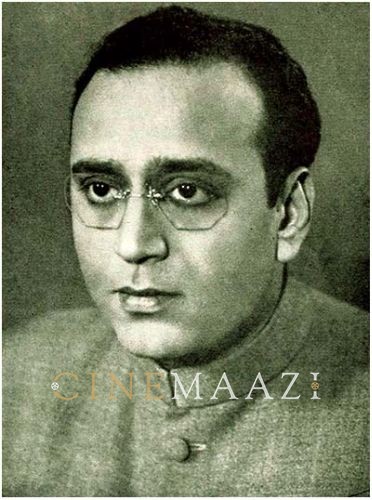
Subscribe to read full article
This section is for paid subscribers only. Our subscription is only $37/- for one full year.
You get unlimited access to all paid section and features on the website with this subscription.
Not ready for a full subscription?
You can access this article for $2 , and have it saved to your account for one year.
- Real Name: Mubarak Mechant
- Born: 30 January 1909
- Died: 26 July 1986
- Primary Cinema: Hindi
One of the screen’s most polished gentlemen, long-standing actor and director, Mubarak Mechant, better known as Mubarak in films and as Moby to his friends, was a part of the film industry from its early beginnings in the 1920s up until the 1970s. The longevity of his career proves his success at reinventing himself in films, both in the silent and subsequent talkie era. Initially attached to leading studios of the time such as Bombay Talkies and Chandulal Shah’s Ranjit Studios, he is known for films such as Maharani (1934), Bahurani (1940), Tansen (1943) and Nagin (1954). Starting his career in the silent film era with Pati Patni (1929), in the course of a career spanning more than three decades, he worked in more than 70 films. In many of his later films, he essayed character roles. His consummate talent and finished portrayals ensured that he remained in great demand in the film industry. Off screen, he was known to be a socially charming companion, a gifted conversationalist and an amusing and generous host.
Born on 30 January 1909 in Bombay, he was the son of a construction engineer. Orphaned at the age of two, he was brought up by his father's friend and partner, a Parsi gentleman Mr Dubash. Educated at Saint Xavier’s High School, he later joined Saint Xavier’s College for the BA course. Visiting a film studio in the company of a friend, in order to watch the shooting, the tall, well-built lad with regular features and a fine personality, caught the eye of the director Altekar who spontaneously offered him an acting role. Believing he couldn’t act, Mubarak modestly declined.
However, he was further encouraged by Altekar, and on a visit to Ranjit Studios, owner Chandulal Shah, also impressed by Mubarak’s appearance, manner and accent, made him an acting offer. Shah persuaded him to accept, and he finally agreed, making his debut in Ranjit Film Company’s Pati Patni (1929). The film, written and directed by Shah, starred Gohar Jan, Raja Sandow P K, and Vaidya, among others, in a story about a marriage wracked by suspicion. It revolved around a young married couple Gauri and Amar. When Amar meets with an accident, Gauri becomes the sole breadwinner of the family. Unfortunately, Amar starts suspecting her of having an affair. Speaking about his debut, Mubarak would say, “The film stars Gohar and Raja Sandow with your truly as the ‘smooth villain’.” His family, the Dubashes, didn't know about the film job and Mubarak was too thrilled by the salary of Rs 500 to worry about anything.
The film was scheduled to be completed before the college term began; however, the shooting took longer than planned. The enthusiastic young actor decided to take a break from college for a year and complete the shooting. After the film was complete, he accepted another film offer and then a third, which clashed with his college timings. At this point, he decided to give up studying altogether.
His second film released was the Imperial Film Company’s Vasal Ki Raat (1929), directed by Parshwanath Yeshwant Altekar and starring Zillu, S B Nayampalli, Altekar, and Mazhar Khan. A costume genre film, it was based on Victor Hugo’s drama Hernani.
Employed at Imperial on a monthly salary of Rs 150 per month, his remuneration would rise to Rs 400 – a considerable earning in days when stars belonged to studios and money went a much longer way.
Acting in numerous films, he shared stellar honours with the leading ladies of the day, including Sulochana, Zubeida, Gulab, Gohar, Ermeline, Zillu and Sultana. His co-actors included Jaal Merchant and the Billimoria brothers, among others. Among the silent films he acted in were Altekar’s Gori Bala (1930), the Ezra Mir-directed Noor Jehan (1931), and H M Reddy’s Bar Ke Pobar/ A Wager In Love (1931).
With the advent of the talkies, many actors and actresses lost space to the new stage artistes who were equipped with the required voice for film and also had some knowledge of elocution. At this point, along with some of his co-actors, Mubarak joined the Shakespearean stage group run by the famous English actor Grant Anderson. He learnt the fundamentals of voice control over a year of stage work, participating in the plays Anderson produced and staged in Bombay and across the country.
Not long after the advent of the talkies, the studio system disintegrated and freelancing became the norm. Artistes were no longer attached to studios and had to work independently to attract recognition and roles. Striving to make his mark all over again, Mubarak built up his career in cinema via a series of impressive films. These include the Bombay Talkies productions Kangan (1939) directed by Franz Osten; N R Acharya’s Naya Sansar (1941) in which he played the character Premchand alongside Ashok Kumar and Renuka Devi; and the Gyan Mukherjee directorial Kismet (1943) in which he played the character Indrajeet.
Ranjit’s musical romantic drama Tansen (1943) saw him create his now-famous role of Badshah Mohamed Jalaudin Akbar in the K L Saigal-Khurshid Begum starrer based on the life story of Tansen, a renowned musician in the Mughal court.
Zabaan (1943) is considered a personal triumph for him as he not only acted in the romantic drama but reportedly also wrote the story of this Jayant Desai directorial starring Dixit, Ishwarlal and Kaushalya.
He would deliver impressive performances in box office bonanzas such as the Dilip Kumar-Shyama starrer Shabnam (1949) directed by Bibhuti Mitra; the Ashok Kumar-Nalini Jaywant starrer Samadhi (1950) directed by Ramesh Saigal, and the outstanding success Anarkali (1953) which again saw him portray emperor Akbar in the Nandlal Jaswantlal directorial that ran for 50 consecutive weeks in theatres.
In the years that followed, Mubarak made a mark in a range of films including Shama Parwana (1954), Nagin (1954) in which he played the Nagi chieftain, Heer (1956) in which he essayed Heer’s father, Farishta (1958), Shola Aur Shabnam (1961), Jab Pyar Kisise Hota Hai (1961), Waqt (1965), Hamraaz (1967), and Barkha Bahar (1973).
He is also credited with co-directing the film Bahurani (1940) along with R S Junnarkar. The family drama genre film was produced by Kishore Sahu Productions, and starred Kishore Sahu, Sushila, Rose, Anuradha, Nana Palsikar and Mubarak himself.
In addition to his professional and social talents, Mubarak was adept at and enjoyed playing billiards, swimming and ballroom dancing, in addition to being a keen hunter. An avid film fan, he was also an intelligent reader and a cricket and boxing enthusiast excelling at both those sports during his school and college days. Proficient in half a dozen languages, he also possessed a sense of humour and was known to regale friends with his narration of lively anecdotes.
Mubarak passed away on 26 July 1986, aged 77.
References
Cinemaazi, Suhana Safar With Annu Kapoor
https://www.imdb.com/name/nm0610799/?ref_=ttfc_fc_cl_t5
-
Filmography (70)
SortRole
-
Insaaniyat 1974
-

Barkha Bahar 1973
-
Baharo Phool Barsao 1972
-

Hamraaz 1967
-
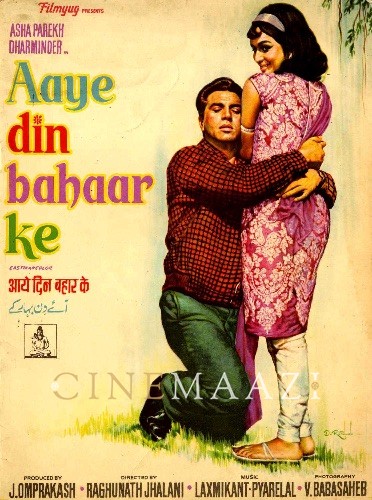
Aaye Din Bahaar Ke 1966
-
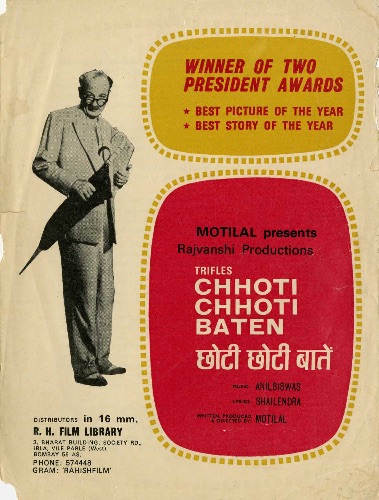
Chhoti Chhoti Baten 1965
-
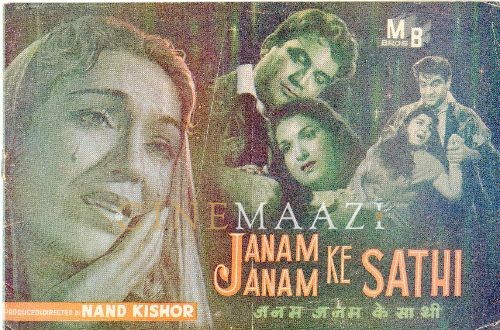
Janam Janam Ke Sathi 1965
-

Fauladi Mukka 1965
-
Pahadi Nagin 1964
-
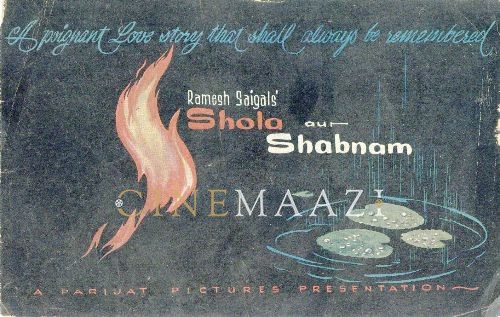
Shola Aur Shabnam 1961
-
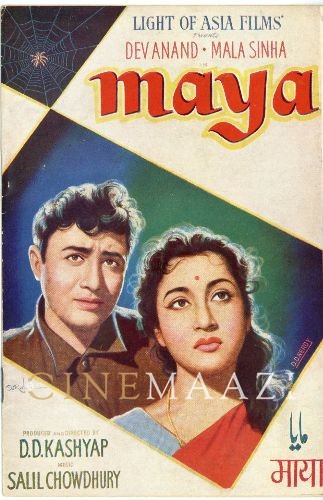
Maya 1961
-






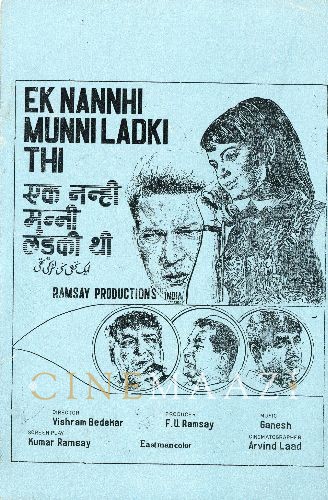
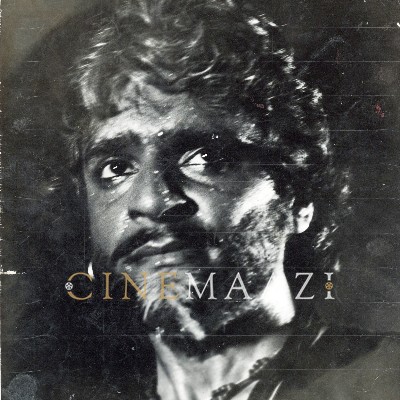

.jpg)



